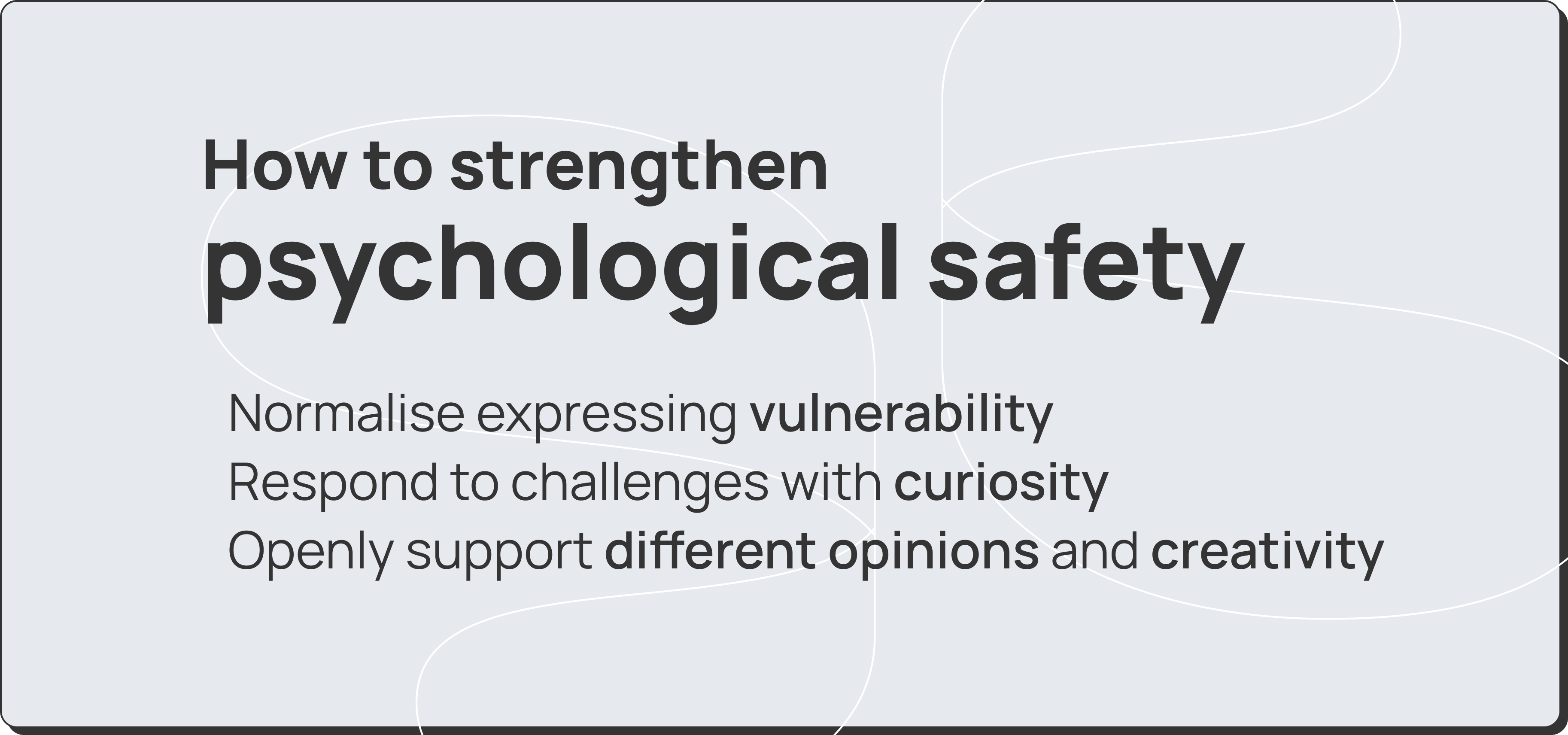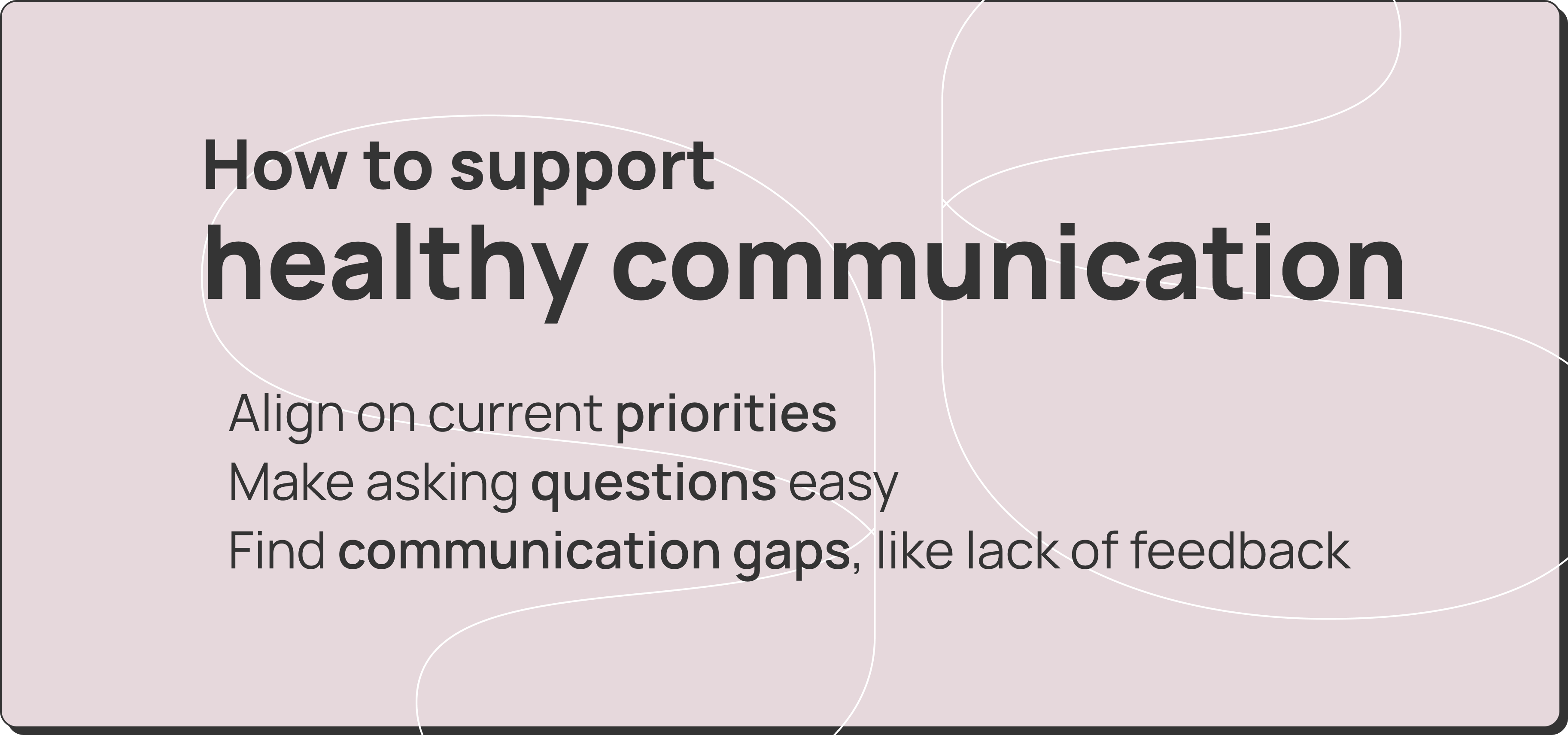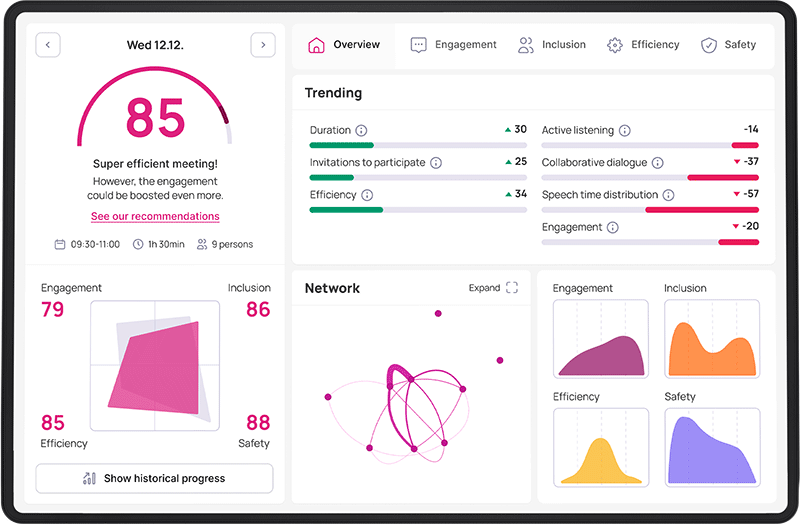If someone were to ask you to describe your company or team’s culture, how would you respond? What values do you share?
Culture is an abstract concept, and it takes time for a new team member to integrate into a company’s culture. However, more than 75% of job seekers consider organisational culture before applying to work for a company, and 56% even consider it more important than salary.

Building a company culture with intention is already challenging, and it can be difficult to identify the things that have a fundamental impact on culture on a daily basis. Moreover, the rise of remote and hybrid work presents new challenges in building and maintaining a strong company culture.
Despite the challenges, building a company culture doesn’t have to be complicated or difficult. It is an intentional effort shared by every individual on the team or within the organisation rather than a task assigned to a single person or the Chief of Culture and People.
"Rather than simply allowing employees to work remotely, we built a system where hybrid work became part of our culture. It wasn’t just about working from different locations—it was about creating seamless, equal opportunities for everyone, regardless of where they were working from." - Stephen Greet, CEO & Co-founder, BeamJobs
What’s company culture?
In anthropology, culture is defined as the system of learned behaviours, beliefs, values, symbols, norms, and practices that are shared by a group of people and can be transmitted between generations. It’s the set of norms and rules that provide a framework for all members to operate within.
"We encourage team members to collaborate flexibly and effectively across different time zones and schedules. This approach respects individual work rhythms and promotes a healthy work-life balance." - Lauren Schneider, Head of Brand & Communications, Compt
The same structures can be examined when researching company cultures. For example, examining the company’s mission, vision, and core principles that guide decision-making can be insightful in identifying shared values.

You can also examine the different ways in which people communicate and collaborate, such as the formality of meetings and discussions, the level of hierarchy in the organisation, and the definition of roles and relationships.
It’s also important to note that there are numerous implicitly shared cultural features and norms that shape the organisation’s culture, but aren’t explicitly discussed. For example, some companies may have an unspoken policy of always agreeing to work overtime, and team members may feel unable to refuse.
Why you should care about fostering a healthy company culture
For individuals, and teams, to reach peak performance, there must be a good cultural fit between them and the organisation. When employees align with the values, mission, and culture of the organisation, they tend to experience higher job satisfaction and engagement.
Similarly, employees who feel a strong cultural fit are more likely to stay with the organisation long-term, perform better, and be more productive. It even seems that employees who connect to the culture have better collaboration and reduced stress.
Most people are motivated to give their best if the organisation’s mission aligns with their own. Therefore, it’s important for the company values and significant cultural elements to be explicitly stated and shared by everyone in the company.
Why is company culture so important for hybrid and remote teams
Ultimately, company culture has an enormous impact on the success of the company. Company culture plays into the people’s wellbeing, and they report being healthier, happier, more productive, and more committed to work. This directly plays into organisational level, and companies with positive workplace cultures indeed have higher annual returns.
Essentially, think of company culture as the framework for reference for all people, it’s the shared environment where all people act. It’s the set of beliefs and attitudes of the way things are done in the workplace. Having a positive company culture makes it easier to onboard new employees as well as continuously encourage teams and employees to act according to the norms of the company, without even thinking about it.
This is especially true for hybrid and remote teams, since the impact of the environment on their behaviour is smaller. A strong positive company culture can support employees with a sense of belonging, and maintain their motivation and engagement even without a physical contact to the team and employees.
Then, the biggest question is: how can we build a culture that employees will truly connect with?
"At OPIT (Open Institute of Technology), we've successfully established a thriving hybrid work culture... We emphasize a 'digital-first' approach in our operations, creating an environment that supports both in-person and remote workers with no discrepancies." - Greta Maiocchi, Head of Marketing & Admissions, OPIT
3 easy tips for a stronger company culture
1. Define and communicate values
Gather everyone and ensure they are on the same page by defining shared values. While this may seem self-explanatory, there’s no such thing as too much clarity or communication when it comes to culture.
It’s important to communicate—and re-communicate, if necessary—what your company is trying to achieve together, as everyone wants to feel like they’re doing something meaningful.
"We've been successful in implementing a hybrid work model, and it's become a key component in our business growth. Instead of simply transferring our in-office culture online, we've emphasized building a new culture that values trust, flexibility, and communication." - Gianluca Ferruggia, General Manager, DesignRush
2. Foster psychological safety
Psychological safety should be non-negotiable for any culture. Are your team members able to raise concerns, share ideas, and ask for help or clarification openly, without fear of humiliation or retribution? Psychological safety is a shared belief that the environment is safe for interpersonal risk taking. This means that team members can speak up when needed and share feelings that could be perceived negatively.

Psychological safety is universally important and provides a strong foundation for open and transparent communication, which is crucial for building a positive culture. When communicating remotely, it’s important to focus on shared channels and ensure they’re spaces for sharing vulnerabilities, instead of relying solely on 1:1s or other channels.
"We've found that these initiatives not only improve productivity, but also enhance employee satisfaction, leading to a more innovative and resilient team." - Gianluca Ferruggia, General Manager, DesignRush
3. Support healthy communication
Promote open and transparent communication practices. When transitioning to or building a culture on remote platforms, it’s easy to overlook important elements.
Celebrate achievements, provide recognition, and promote clarity on shared goals and decisions. Additionally, pay attention to any silos or social bubbles and collaborate with people outside of your immediate circle.

While there may be little serendipity in digital communication, there are creative ways to incorporate small talk and shared coffee breaks. Find what works best for your team.
"At BeamJobs, we built structures that encouraged collaboration asynchronously. For example, project updates were documented transparently, giving remote workers the same access to information as those in-office. This reduced meeting fatigue while keeping everyone aligned." - Stephen Greet, CEO & Co-founder, BeamJobs
The secret to building a strong hybrid culture starts with objective data and taking the first step
Building a positive company culture takes time but is well worth it. It should be thought of as a journey, not a destination, and one that every team member gets to be a part of.
Embedding good practices into the culture is a daily effort and it can carry teams and organisations a long way. A culture that employees can connect with serves as a guiding compass, directing collective efforts towards a meaningful purpose both on a high level and in daily work.
A strong company culture can provide support to the organisation and the team during challenging times, while also being inclusive for a diverse group of individuals. Start taking small, collective steps daily, and you will see the change.
Ayda Insights can help you objectively measure your company culture
Learn more about how to gain objective insight into your team collaboration with the Ayda Insights dashboard.

About the author
Darja is a Behavioural Scientist and Customer Success Manager. She holds a Master’s in Social Sciences from the University of Helsinki, specialising in business anthropology and organisational psychology. She is also working on service and product development.


.png)
.png)